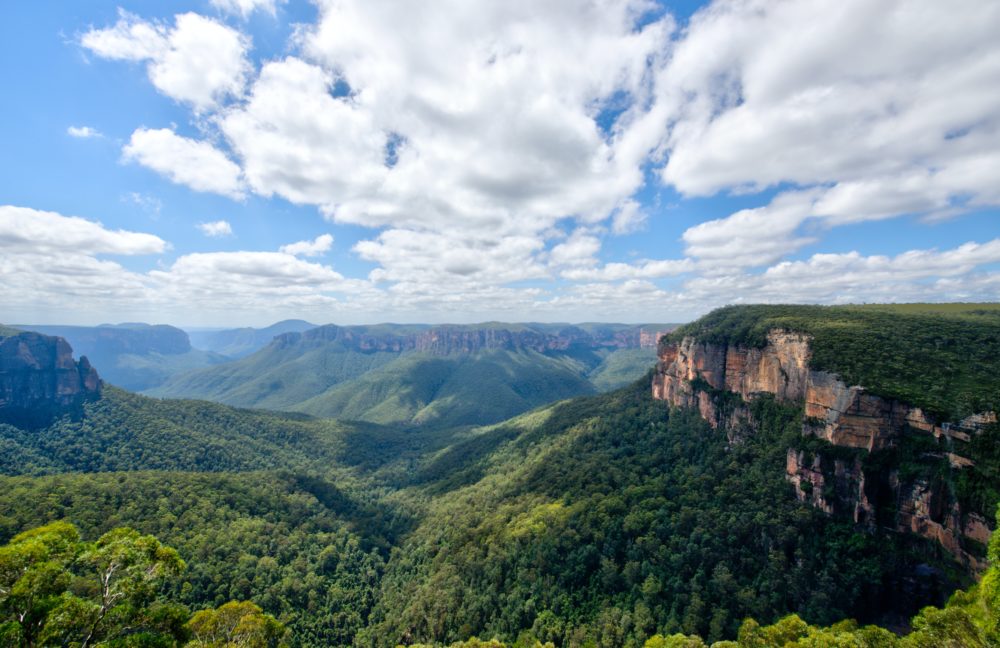UPDATE March 2024
NSW water case discontinued after client secures government commitments
Our client, the Nature Conservation Council of New South Wales (NCC), has this month settled its court case against the NSW Ministers for Water and the Environment challenging the validity the Border Rivers Water Sharing Plan.
EDO’s Freshwater team filed the case on behalf of NCC in 2021, arguing that the former LNP NSW Government failed to properly consider future climate change when making the Border Rivers plan. It was the first time a plan for sharing water has been challenged in court over climate change.
Just days before the matter was due for a 5-day hearing before the NSW Land and Environment Court, EDO led negotiations to resolve the matter, with the current ministers committing to considering the future impacts of climate change on water flows, including extraction limits and allocations. Importantly, the Ministers have committed to obtaining independent reviews of this work.
Nature Conservation Council NSW water campaigner Mel Gray said: “This is a big win for the rivers and people of NSW. As the extremes of climate change loom large, water-sharing arrangements will have to align with the reality on the ground.”
“With this agreement the NSW Government has made a strong commitment to improve the way rivers are managed, and NCC will work with the ministers to ensure it is delivered. The health of the rivers depends on it.”
EDO will now work with the NCC to facilitate the important NSW Government policy commitments, and push for relevant law reform.
EDO thanks the generous assistance from counsel Jane Taylor, Jackson Wherrett and Bret Walker SC, and experts professors Willem Vervoot, David Karoly, Richard Kingsford and Janette Lindesay.
Previous story:
A plan for sharing water in the northern Murray-Darling Basin is being challenged in court over climate change, in an Australian and world legal first.
Acting on behalf of the Nature Conservation Council of NSW, EDO lawyers will head to the NSW Land and Environment Court to challenge the validity of the Border Rivers Water Sharing Plan (WSP), arguing that the NSW Government failed to properly consider future climate change when making the plan.
The Border River catchment sits along the NSW/Queensland border and includes the Macintyre and Severn Rivers. The catchment is home to endangered species such as the eel-tailed catfish, Australian painted snipe and curlew sandpiper.
Both the NSW Water Minister Melinda Pavey, who approved the WSP and the NSW Treasurer Matt Kean, who as Environment Minister provided concurrence, are named as respondents in the Class 4 Judicial Review proceedings.
Hear more on the case from Freshwater Managing Lawyer Dr Emma Carmody:
Chris Gambian, CEO of the NSW Nature Conservation Council said:
“If we fail to keep our rivers alive as a first priority, it doesn’t really matter what our second priority is. We will have lost the fight.
“Climate change is not some abstract phenomenon that may occur in the distant future. River communities in NSW are bearing the brunt of that change every day, right now.
“Just 18 months ago, many towns in western NSW were entirely dependent of bores or truck deliveries for their water supplies.
“It is not just prudent for governments to factor in the impacts of climate change. It is a legal requirement that we are seeking to uphold by taking this action.”
EDO Managing Lawyer Dr Emma Carmody said:
“Our client alleges that under their own laws, NSW Government Ministers are required to properly consider climate change, including future climate change, when drawing up a water sharing plan. By relying on historical climate data for the catchment, we argue that they have failed to do this, including in relation to the calculation of the catchment-wide limit on extractions from the river.”
“The alleged unlawfulness arises not only due to the impacts of this failure on the Border Rivers itself, but on surrounding floodplains and downstream rivers and communities, notably the Barwon-Darling/Barka River, which receives some of its flows from the Border Rivers catchment.”
“Our client will further argue that the rights of children and future generations to enjoy and benefit from healthy, functioning river systems requires the Minister to properly consider climate change and its impacts on water availability and quality and to devise a water sharing plan that reflects the likelihood of a hotter, drier future.”
“Our client also alleges that setting drought reserves for basic landholder rights on the basis of lowest inflows up to July 2009 is unlawful, not only because it excludes the most recent and severe drought on record, but future climate change.”
“There is ample evidence which indicates that the rivers and floodplains of the northern Murray-Darling Basin are over-extracted. This is now being exacerbated by climate change, which is making it hotter and drier. We can’t afford to make decisions about our precious water resources which ignore this reality. Indeed, our client alleges that the law requires it.”
“Our client will ask the court to find that the Border Rivers Water Sharing Plan is invalid and must be replaced by a lawful plan.”
“If this case is successful, it will likely mean that future Water Sharing Plans will have to take climate change into account, in particular in relation to the setting of catchment-wide extraction limits and environmental flow rules. This could mean more water for fragile ecosystems across the Murray-Darling Basin and in turn healthier river systems and greater water security for downstream communities. Our children and future generations deserve to enjoy and benefit from a healthy, functioning river system.”
Read more about our Freshwater work






